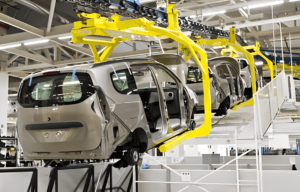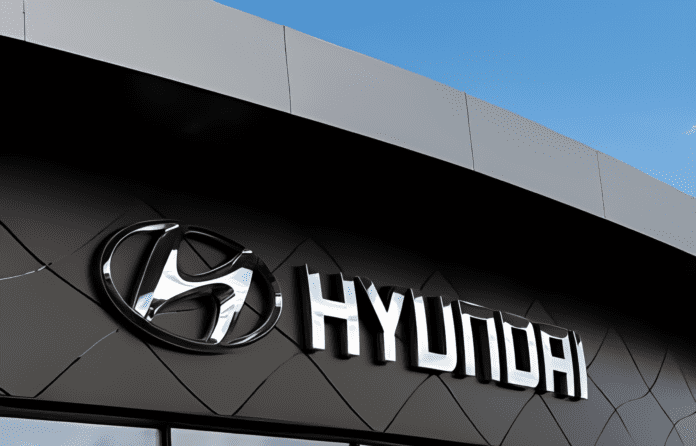Robots working in the factory and assembling products in a short time without human assistance were the talk of movies a decade ago. But with AI these days, it seems possible. Something like that is happening in Hyundai. Using factories that are barely staffed, operated by artificial intelligence (AI), and use robots to handle essential manufacturing tasks, Hyundai can now construct and deliver automobiles within six hours after an order is placed.

This ‘Smart’ facility, which is currently producing the Hyundai Ioniq 5 and, from 2024, the Hyundai Ioniq 6, is being unveiled for the first time at the Korean brand’s new Innovation Centre in Singapore and will serve as a test bed for scores of similar sites popping up in cities around the world, including the UK. As part of a concerted effort to elevate the status of the brand, these cutting-edge electric vehicle assembly plants will cater to consumers in urban areas.
A Customer Experience Center
“This isn’t just a factory; it’s a customer experience center,” Alpesh Patel, the factory’s head, said. “As one of our staff members put it, Customers can interact with us in a close way.”
Customers begin their Hyundai customization experience in the “Ioniq Lounge.” (The site will offer unique choices.) They are then shown a computer-generated simulation of the car’s assembly in a special VR room, after which a screen is raised to expose the actual manufacturing floor and the finished product itself.

From there, visitors proceed to the site’s restaurant to consume produce grown on-site at Hyundai’s robotically managed Smart Farm before watching the car being test-driven on the factory’s roof test track, à la Fiat’s ancient Lingotto plant in Italy.
When the vehicle is finished, autonomous robots bring it to the lobby. Why this sudden rush towards customization? After considering the benefits, Patel argues that personalization becomes an obvious choice.
To capitalize on this growing trend, he said, Hyundai would roll out a complete “mass personalization” attack throughout their entire lineup in the coming years.
AI The Future Leader
The hybrid human-AI workforce employs a meta factory (a digital twin) to simulate the processing of future jobs, such as huge shipments, to determine where to dispatch robots and how many to deploy at any given time.

Together with a human counterpart in a digital command center, the AI brain will be in charge of day-to-day operations and long-term planning. “We want to combine surveillance and prevention,” Patel added. This is the starting point. We hope to have this fully autonomous entity with a human there only to confirm, not react, by 2027.
Cell-based manufacturing, used at the factory, is a versatile production process that enables multiple models to be made simultaneously on the same line without requiring station reconfiguration. The Singapore plant can run on just 29 technicians and produce 70 automobiles per day (“this number could grow”) during one eight-hour shift thanks to an army of artificially intelligent robots that conduct everything from moving stock to quality checking and parts fitment.
In fewer words, Patel explains, “We use fewer people, but they do more technical jobs.” In response to a question about the impact on workers with fewer qualifications, he said that certain positions would be eliminated but that the solution was to train people to do more complex work with artificial intelligence. “Ultimately, the applications that we envision are that the AI will benefit the worker. Productivity and education are vital, Patel emphasized.
Different from the large Korean Ulsan facility, where 34,000 workers make 5600 vehicles every day, this tech-heavy setup is likely to be used at more conventional facilities, according to Patel. However, he emphasized that they would accept anything that increased productivity.
Cars Designed for Different Situations
Hyundai plans to use Smart’s manufacturing facilities as nerve centers for its proposed shared mobility concept, which will have vehicles built on a common chassis but with interchangeable interiors. These could be autonomous cars customized for certain uses, such as providing mobile meeting space or carrying employees to and from the office or production facility. “These are cars that are customized for an experience, not a person,” Patel explained.

Different situations call for the utilization of various modes of transportation. We see a future where special-use automobiles share a common chassis and powertrain while allowing for highly customized interiors to meet a wide range of requirements. He continued, saying, “There is no limit” to the variety of automobiles that may be produced in such facilities. In light of this, the company also announced that beginning in 2028, its Urban Air Mobility vehicles will be manufactured at these assembly lines, highlighting yet another advantage of the cell-based production technique.




